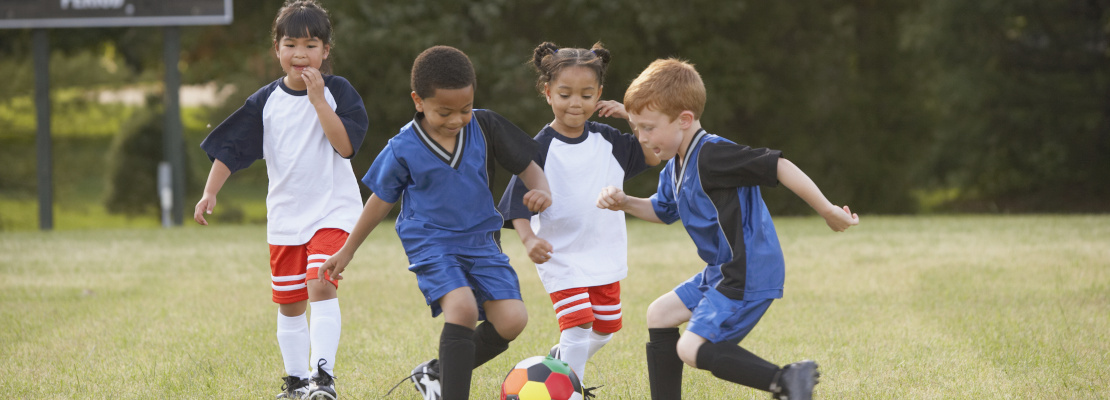Sports are a wonderful activity for children; they can strengthen them physically and help keep them healthy, bring new friends into their lives, and teach them important life lessons, including teamwork, responsibility, discipline and courtesy. Supporting sports for your child or teenager can be expensive, especially if there are several children participating in these popular school or extracurricular activities. Kids grow at different rates, and for some, a uniform could last a full year (or two), or it might fit well for only a few months. For young, growing amateur athletes, the annual (or more frequent) replenishment of leotards, ice skates, uniforms, sticks, racquets, balls, shoes, helmets and other protective gear for sports such as gymnastics, baseball, football, ice and field hockey, tennis, and soccer, can get pretty pricey. If kid’s sports are a significant, regular expense, then it should be a consistent cost category in your household budget.
Looking for ways of controlling a yearly family sports outlay is a prudent approach to managing expenses. Parents always want their kids to have good quality, appropriate—safe and durable—gear, but there are options for buying sporting goods for school children that can save some significant money while getting equipment that is still in good shape.
How can you save money on school sports?
When budgeting out costs for school sports, a few money-saving ideas include:
- Buy used gear locally from resale stores. Most cities have local sporting goods stores that carry used equipment, such as baseball bats, hockey sticks, tennis and field hockey racquets, golf clubs, soccer balls, basketballs, face masks and other protective gear. The quality of the equipment may vary, but generally it has to be in good condition if its capable of being resold. Buying locally means that the equipment can be inspected carefully before purchase to ensure it appears trustworthy.
- Pick up used equipment online. The are national online stores for many varieties of sporting goods, possibly with more competitive prices than local merchants. Note that this equipment is sold “as is” and usually can’t be inspected. Some online retailers for used sporting goods also have local stores, so it may be possible to check out online merchandise firsthand, and you can look for new arrivals that may not be listed online yet.
- Bargain hunt during the sports off-season for potential savings. There may be local deals on football equipment in the summer, or baseball equipment in the winter, so check area stores regularly for off-season deals to save money. Browse clearance racks or sections for marked-down items, and monitor retailers for seasonal sales and special discounts. Go online to look for upcoming sales and specials, then add them to your calendar so you're prepared when they start. You may be able to sign up for retailer emails for early notice of future sales.
- Exchange, borrow or buy used sporting goods from friends or other parents. The best source for good, used equipment may be someone you already know, such as the parents of your children’s classmates in school, church, other community organizations, or friends. They are managing sports expenses too and can be an easily accessible resource to exchange with, borrow or buy from.
- Use the power of targeted social media to buy from neighbors. There are helpful local neighborhood social media apps and websites that make it easy to search for and obtain equipment in your immediate area or from neighborhoods in your general vicinity.
- Get used gear from your extended family. Cousins, nieces, nephews, brothers and sisters may have gear from children who are also into school sports, so extended family members might just be a great, trusted source of used equipment at reduced or no cost.
- Don’t forget to sell your family’s used sporting goods. Being careful about money isn’t only about spending; it can include selling your used items to fund new purchases. Local resale sporting goods stores also buy, so contact one to check on the types of equipment they’re interested in buying. As mentioned above, using local social media is a great way to advertise and promote what you have to sell to nearby buyers, using text with photographs. Keep in mind that detailed descriptions and clear, close-up photos are effective marketing techniques when selling an item. Creating an ongoing cycle of buying and selling is a smart way to manage expenses, and it can make some purchases more of an investment and less of a sunk cost.
You can learn more about family spending and money from these previous Delta Community blogs below
Looking to attend online and listen to some free, live financial advice?
For more information that may help you manage your finances at any age, look into the free Delta Community Financial Education Center webinars on a range of practical financial topics. Please visit the Financial Education Center's Events & Seminars page to register for its on-demand webinars.



